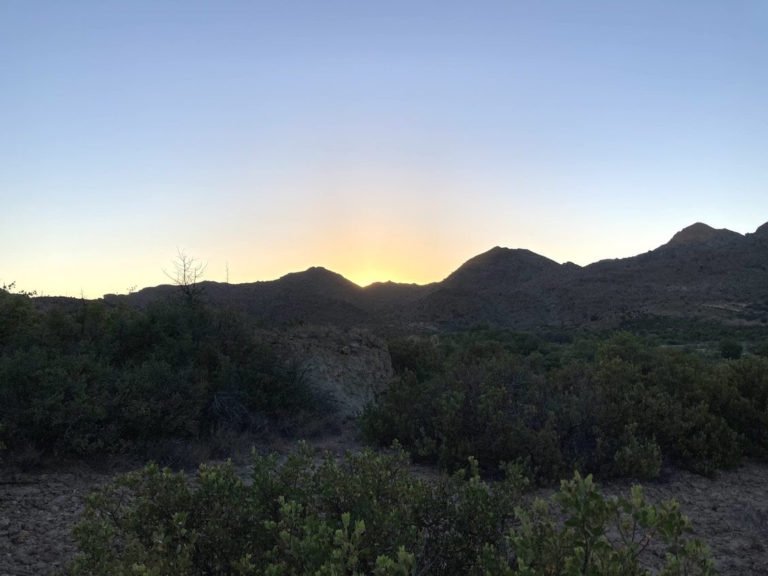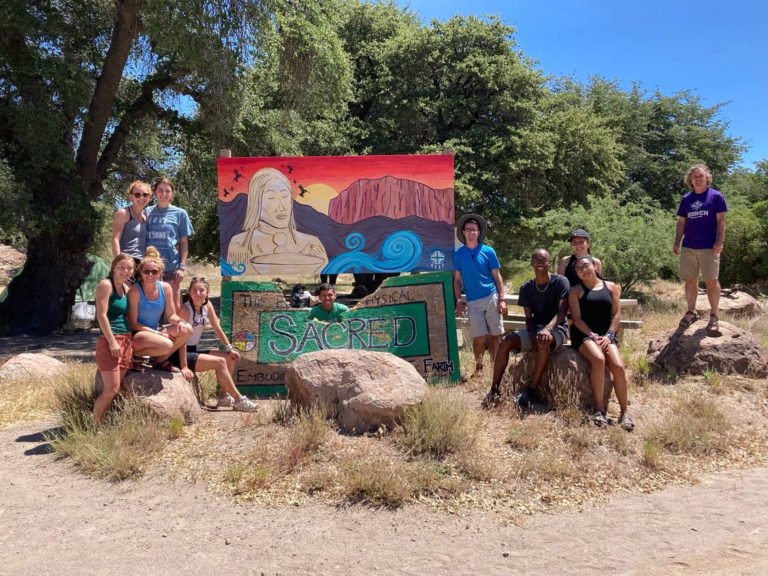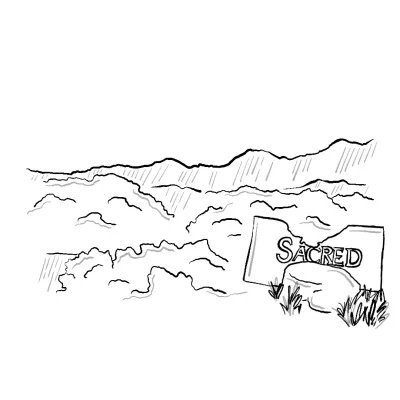4: Running to #protectoakflat
USA
A Climate Pollinator story by Sierra Ross Richer
The runners on the men’s and women’s cross country teams at Goshen College, a Mennonite university in Goshen, Indiana, ran over 5,000 miles last September. They dedicated those miles to a campaign to protect Oak Flat, a sacred site of the indigenous Apache people, from mining.
Arleth Martinez, a member of the women’s team who led the effort, visited Oak Flat (called Chi’chil Bildagoteel in the Apache language) during a summer class in the southwestern United States. On the trip, she and others from the cross country team camped amid the ancient, gnarled oak trees and rock outcroppings that characterize Oak Flat, located in the Tonto National Forest in Arizona. The area is under threat of being turned into a copper mine.
When Europeans arrived on the North American continent centuries ago, they decimated the indigenous population by forcibly removing indigenous people from their lands, making them give up their traditions, languages and cultural knowledge and destroying their sacred sites.
Oak Flat, which was deemed a traditional cultural property in 1955, is one of the few sacred indigenous sites left in the country. In 2014, the government tried to trade it to a mining company, Resolution Copper.
If the trade goes through the mine will pollute the land and water and turn the sacred site into a lifeless crater. The trade is being fought by a group called the Apache Stronghold.
In September, the Apache Stronghold took their case opposing the land swap to the ninth circuit of appeals. Each day during that month, the Goshen College cross country team shared posts on their social media accounts with the hashtag #protectoakflat.
Arleth talked to her team about the issue and encouraged them to begin each of their runs with a prayer for Oak Flat. “I wanted to (create) a support system,” Arleth said, “and make sure that they knew we were with them and that we’d stick with them.”
At the hearing, the court agreed to reopen the case. It will likely reach the Supreme Court.
This campaign is important because it’s not just about protecting one sacred site, Arleth explained. It’s about changing the pattern of taking and destroying the land of indigenous peoples.
“If we let this keep happening,” Arleth said, “people coming in and taking the land and making this big environmental disaster, it’s just going to keep happening and cycling, and in the end there’s not going to be resources left.”
Learn More
Article by Arleth published in Anabaptist World Magazine
Photos



